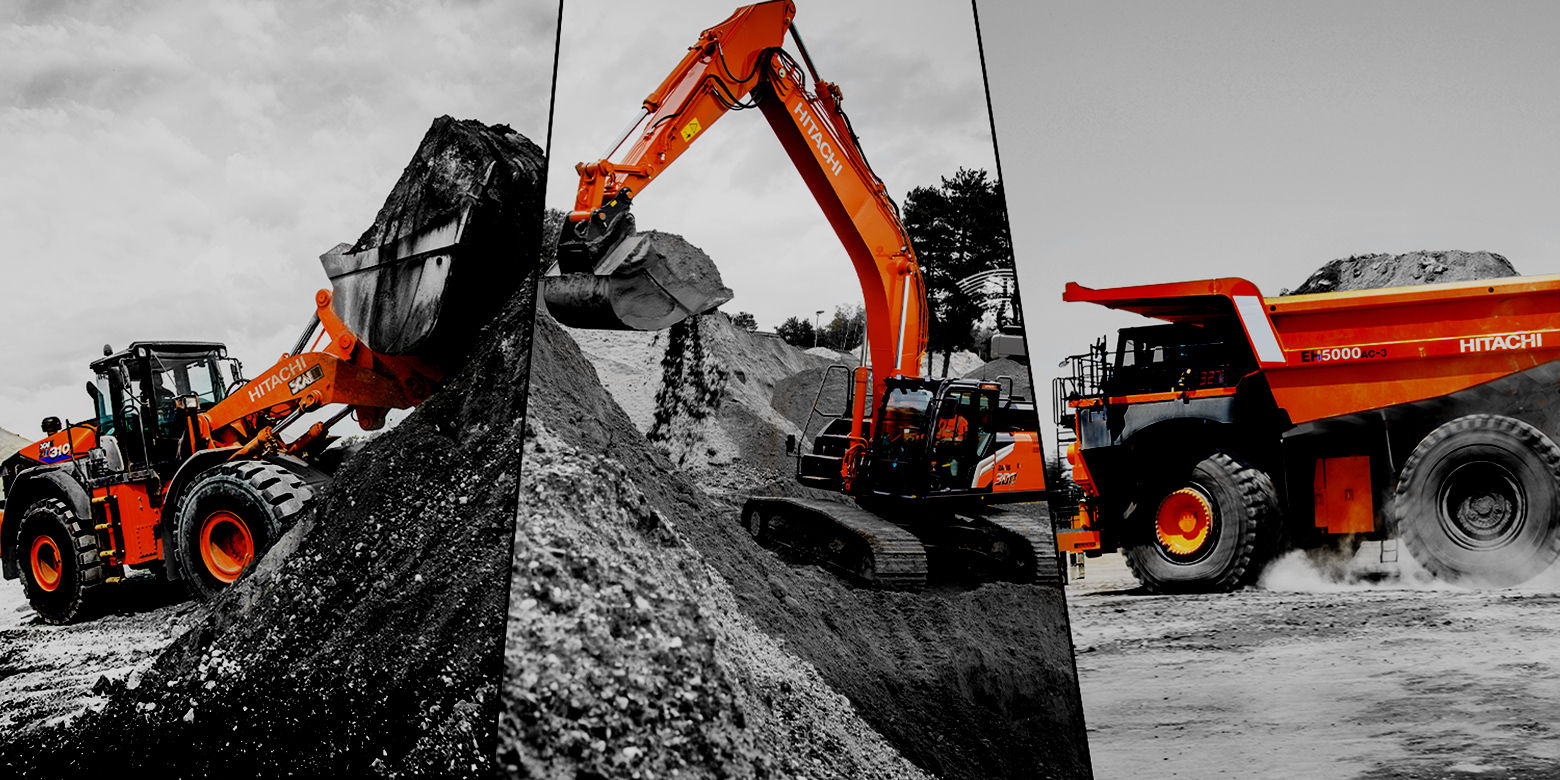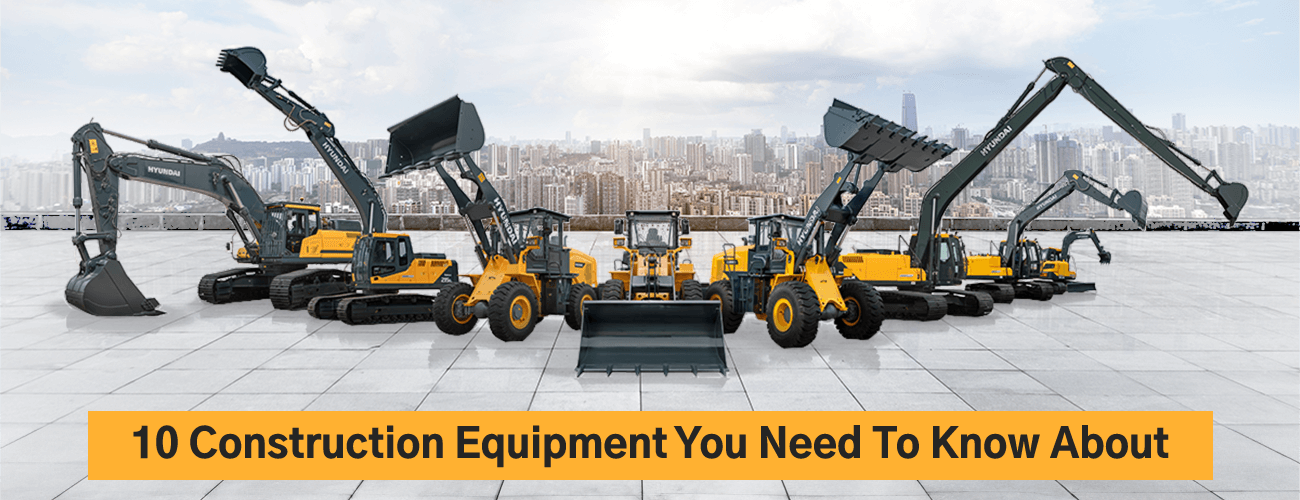Exploring the Financial Conveniences of Leasing Building Tools Contrasted to Having It Long-Term
The decision between possessing and leasing construction devices is crucial for economic management in the industry. Renting offers instant price financial savings and functional flexibility, allowing companies to designate sources extra efficiently. In contrast, ownership includes significant lasting economic commitments, including upkeep and depreciation. As contractors consider these choices, the influence on money circulation, job timelines, and innovation gain access to comes to be significantly substantial. Understanding these nuances is essential, particularly when taking into consideration how they line up with details project requirements and economic strategies. What variables should be prioritized to make certain ideal decision-making in this facility landscape?

Cost Contrast: Renting Vs. Having
When evaluating the economic effects of owning versus renting out building and construction devices, a complete expense comparison is essential for making informed decisions. The selection in between owning and renting out can significantly influence a business's profits, and comprehending the associated prices is crucial.
Leasing building tools commonly involves reduced upfront prices, allowing services to allot resources to various other functional needs. Rental arrangements often include adaptable terms, enabling companies to gain access to advanced machinery without long-lasting dedications. This adaptability can be specifically beneficial for short-term jobs or changing workloads. Nevertheless, rental prices can gather with time, potentially going beyond the expense of ownership if equipment is needed for an extensive period.
Conversely, owning construction equipment needs a considerable initial investment, along with recurring prices such as financing, insurance, and devaluation. While ownership can result in long-term cost savings, it additionally binds resources and might not provide the very same level of versatility as leasing. Additionally, possessing tools requires a dedication to its application, which may not constantly line up with job demands.
Inevitably, the decision to possess or lease should be based on a detailed evaluation of certain project needs, financial ability, and lasting critical objectives.

Maintenance Expenditures and Obligations
The option between having and renting construction tools not only includes financial factors to consider but additionally incorporates ongoing upkeep expenditures and obligations. Possessing equipment calls for a considerable dedication to its upkeep, which includes regular assessments, repair services, and prospective upgrades. These duties can promptly accumulate, leading to unexpected expenses that can strain a spending plan.
In contrast, when renting equipment, maintenance is typically the obligation of the rental company. This plan permits professionals to stay clear of the financial worry related to wear and tear, as well as the logistical challenges of organizing repair work. Rental agreements often consist of provisions for upkeep, implying that contractors can concentrate on completing jobs instead of bothering with tools condition.
In addition, the diverse array of equipment readily available for rent makes it possible for business to pick the most recent versions with advanced modern technology, which can enhance effectiveness and performance - scissor lift rental in Tuscaloosa, AL. By selecting services, companies can stay clear of the long-term obligation of tools depreciation and the connected upkeep headaches. Ultimately, reviewing maintenance costs and responsibilities is critical for making an informed decision concerning whether to have or rent out building and construction equipment, substantially impacting general task prices and operational efficiency

Depreciation Influence on Ownership

A considerable variable to consider in the decision to have building tools is the impact of depreciation on general possession expenses. Devaluation stands for the decrease in value of the equipment in time, influenced by aspects such as use, wear and tear, and developments in innovation. As devices ages, its market price lessens, which can dramatically affect the owner's monetary setting when it comes time to trade the tools or market.
For construction firms, this devaluation can translate to significant losses if the devices is not used to its fullest potential or if it lapses. Owners should account for depreciation in their economic projections, which can bring about higher general costs contrasted to leasing. Additionally, the tax obligation implications of devaluation can be complex; while it might offer some tax obligation benefits, pop over to this web-site these are frequently balanced out by the fact of minimized resale value.
Inevitably, the burden of devaluation emphasizes the relevance of comprehending the lasting monetary dedication included in possessing construction devices. Firms should carefully examine how commonly they will utilize the equipment and the prospective economic effect of devaluation to make an informed choice concerning ownership versus leasing.
Economic Flexibility of Leasing
Renting out construction equipment uses substantial financial versatility, enabling companies to assign resources much more effectively. This flexibility is particularly vital in a sector characterized by varying job needs and differing work. By deciding to rent out, companies can stay clear of the substantial resources investment required for acquiring devices, protecting money circulation for various other operational needs.
Furthermore, renting out equipment enables companies to tailor their devices selections to specific project requirements without the long-lasting commitment connected with possession. This implies that services can quickly scale their equipment supply up or down based upon anticipated and existing job requirements. As a result, this flexibility lowers the threat of over-investment in equipment that may end up imp source being underutilized or outdated in time.
Another financial benefit of leasing is the capacity for tax obligation advantages. Rental settlements are typically considered overhead, permitting instant tax deductions, unlike devaluation on owned equipment, which is topped several years. scissor lift rental in Tuscaloosa, AL. This instant expenditure acknowledgment can further enhance a business's money position
Long-Term Project Factors To Consider
When reviewing the long-lasting demands of a building organization, the decision in between leasing and possessing devices comes to be more complicated. For tasks with extended timelines, buying tools may appear advantageous due to the potential for lower overall expenses.
Furthermore, technological advancements pose a substantial factor to consider. The construction sector is evolving rapidly, with new equipment offering enhanced efficiency and safety features. Renting allows firms to access the most recent technology without devoting to the high ahead of time prices linked with investing in. This adaptability is specifically helpful for organizations that manage diverse jobs needing different kinds of equipment.
In addition, financial stability plays a crucial role. Owning devices typically involves substantial resources investment and depreciation problems, while leasing enables for more foreseeable budgeting and capital. Inevitably, the selection in between possessing and renting out should be straightened with the calculated purposes of the building and construction business, thinking about heavy equipment dolly rental both anticipated and present project needs.
Final Thought
In final thought, leasing building and construction tools offers considerable monetary benefits over lasting possession. Ultimately, the decision to lease instead than very own aligns with the vibrant nature of building and construction projects, allowing for versatility and accessibility to the latest equipment without the financial problems connected with possession.
As tools ages, its market worth decreases, which can dramatically influence the proprietor's financial position when it comes time to sell or trade the devices.
Renting out construction tools offers significant monetary versatility, enabling firms to allocate resources more efficiently.Additionally, renting tools makes it possible for firms to customize their tools selections to certain job requirements without the long-term dedication linked with ownership.In conclusion, renting building and construction devices uses significant monetary advantages over long-term possession. Eventually, the decision to rent instead than very own aligns with the dynamic nature of construction projects, permitting for versatility and access to the newest equipment without the financial burdens connected with ownership.
Comments on “Mini Excavator Rental in Tuscaloosa, AL: Compact and Powerful Equipment for Small Jobs”